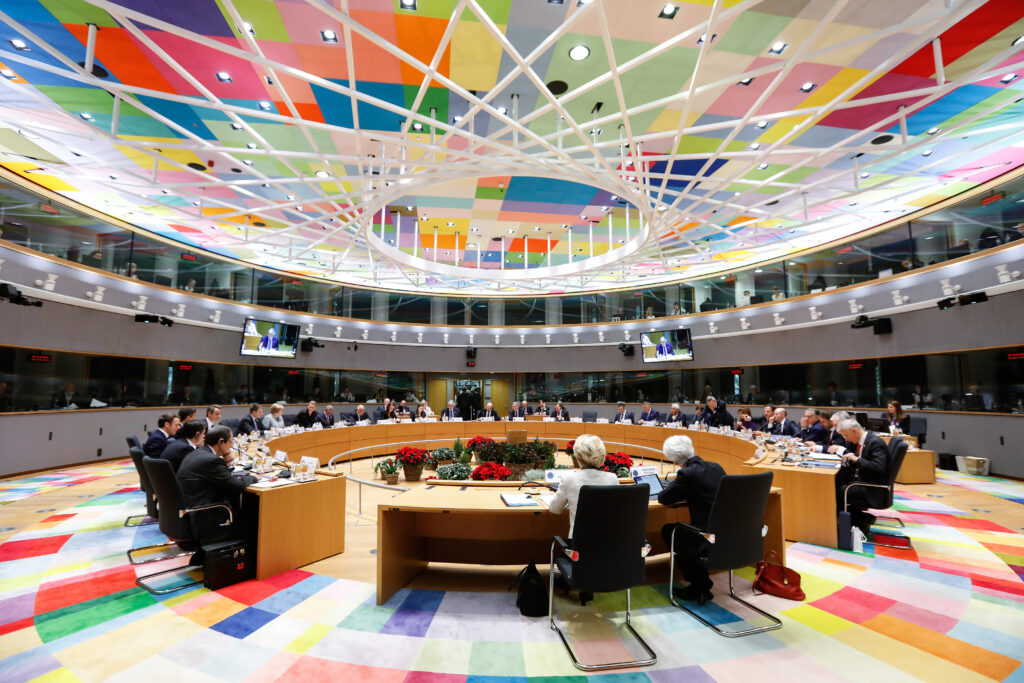The European Union is once again moving forward with a long-stalled proposed procurement regulation. It would allow the EU to close procurement or impose penalties when countries do not open their government procurement to EU companies. At the end of May, the European Council issued a revised proposal for an International Procurement Instrument (IPI) that reflects a consensus among the member states. It now needs the approval of the European Parliament. This post reviews the latest proposed revision of the IPI and its possible impact on the United States.
Since 2012, the EU has been considering a proposed regulation that it could use as leverage to open foreign procurement markets. Its pursuit of such a measure arises from its frustration that it has opened a large amount of its public procurement to third countries, but they have not reciprocated. Instead, EU companies encounter closed procurement markets or difficulties in gaining access to foreign procurement. The EU has grown increasingly concerned with barriers that EU firms face in China’s procurement market.
The initial proposal by the European Commission would have allowed the EU to close its public procurement to countries that did not reciprocate with access to their own procurement markets. That proposal was opposed by 18 of its 28 member states. Four years later, the Commission proposed an amended regulation that attempted to address member state concerns. The revision did not provide for exclusions from EU procurement. Instead, it provided for the imposition of price penalties of up to 20 percent on bids from countries with closed procurement. It was still opposed by 14 members.
The 2016 proposal also drew criticism from both the EU business community and the European Parliament. BUSINESSEUROPE considered it “excessively complex" and was particularly concerned it would not effectively address issues with participation by state-owned enterprises. The Parliament considered the proposal too weak and sought a return to the earlier proposal of exclusions from the EU market.
According to Borderlex, the IPI finally moved forward when the Portuguese presidency of the EU made it a priority and worked out a compromise that gained the support of the member states. As a result, on May 28, the European Council proposed an amended regulation that would allow the EU to limit or exclude, on a case-by-case basis, access to its procurement markets of suppliers from countries that restrict or discriminate against European businesses in their own procurement.
The latest IPI proposal would require the Commission to conduct an investigation into a foreign country’s restrictive procurement measures or practices and seek consultations with it, aimed at removal of the offensive measure. The investigation and consultations would have to be concluded within nine months but could be extended by five months. If the investigation confirms the existence of restrictive measures or practices and the consultations with the country concerned do not lead to a satisfactory result, the Commission could adopt IPI measures. The proposed measures are a combination of the 2012 and 2016 proposals.
The Commission could restrict the access of goods, services or suppliers from the third country to EU procurement in two ways. Under one IPI measure, it could require procuring entities to impose a score adjustment measure on tenders submitted by suppliers from the third country. That measure would apply to the evaluation and ranking of tenders. The percentage value of the adjustment could be up to 40% of the evaluation score of the tender. The second IPI measure would be to exclude tenders submitted by such suppliers. An IPI measure would expire after five years unless it was extended.
The proposed regulation will not affect procurement covered under the WTO Government Procurement Agreement (GPA). However, it could be applied to procurement of GPA parties that is not covered under the plurilateral agreement. That means it could be targeted at U.S. states and local entities that do not open procurement under the GPA or at Buy America preferences, which have long been subject to EU criticism for restricting access.
The next step is for "trilogue" negotiations with the European Commission and the European Parliament. Parliament's approval is needed for implementation of the regulation. Borderlex anticipates that the Parliament will “make the regulation overall more stringent [in order] to make it easier to exclude bidders altogether from the market.” If negotiations with the Parliament “go smoothly,” the new regulation could be issued by the end of 2021.
Jean Heilman Grier
June 4, 2021
Related Posts
EU Business: Rebalance China Relationship
EU: New Push for Measure to Open Procurement


